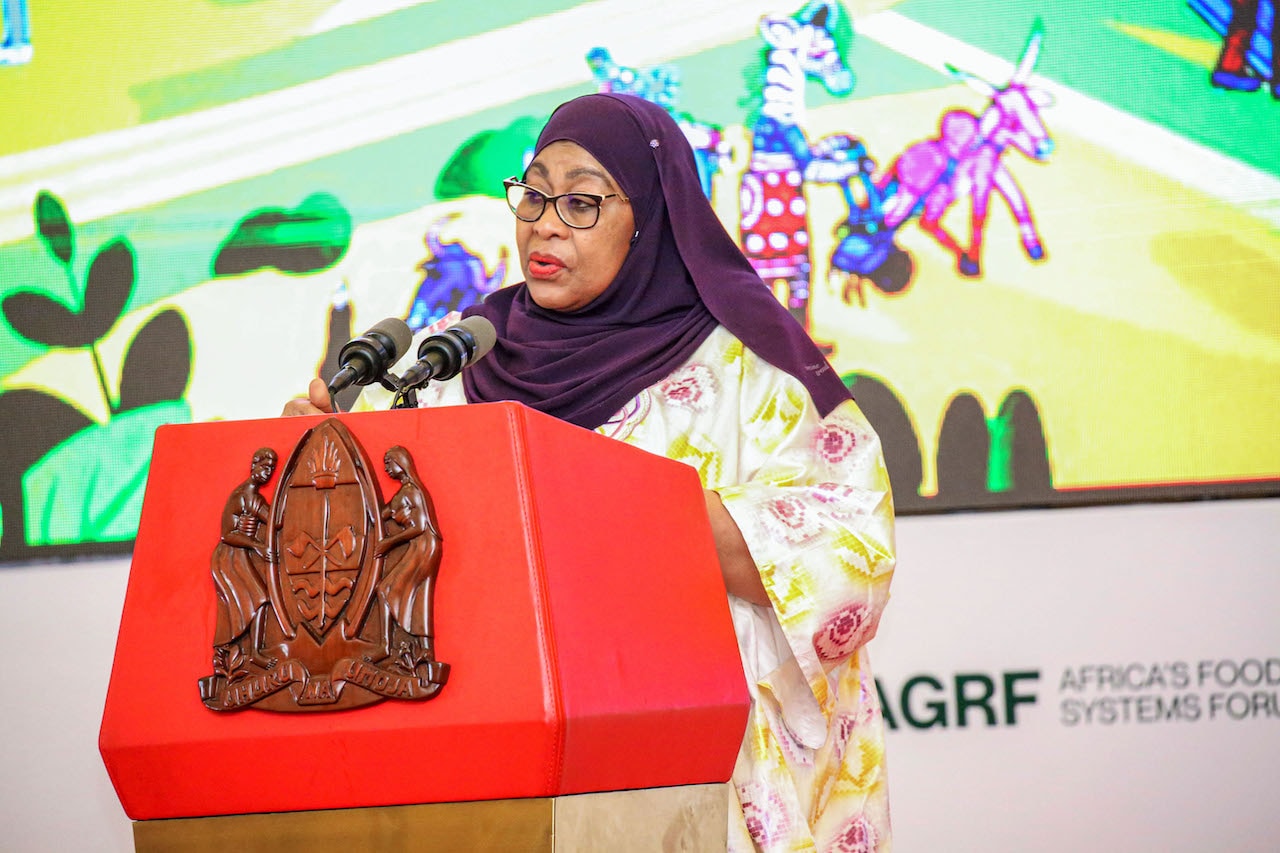Tanzania’s National Irrigation Commission (NIRC) will start harnessing water resources from Lakes Victoria, Tanganyika, and Nyasa for agricultural irrigation. President Samia highlighted this initiative during the culmination of the Farmers’ Day (Nanenane) celebrations, urging the Ministry of Agriculture to explore the use of lake water to enable farmers to achieve two harvests annually.
President Samia emphasized the significance of the abundant water resources in the region and emphasized that utilizing lake water for irrigation wouldn’t harm aquatic life or deplete water levels. She called upon experts to develop plans for leveraging lake water to transform agriculture in the country. The President also noted that other nations have successfully employed lake water for irrigation, even with existing regional agreements.
To maximize agricultural potential, President Samia disclosed that the government had designated approximately 29.4 million hectares suitable for irrigated agriculture. Presently, 727,280 hectares are under cultivation, while 28.6 million hectares remain untapped.
In line with this strategy, President Samia instructed the Ministry of Agriculture to levy fees on completed irrigation schemes, with the collected funds allocated for maintenance and new projects. Additionally, she inaugurated the commencement of drilling 67,800 water wells to benefit small-scale farmers across the nation.
During the budget proposal for the Prime Minister’s Office earlier in the year, Prime Minister Kassim Majaliwa reported substantial progress in irrigation projects, with numerous contracts executed for the construction and revitalization of irrigation schemes. This initiative expanded the irrigated land area from 727,280 hectares to 778,210.6 hectares.
Raymond Mndolwa, Director General of NIRC, confirmed that the planning of irrigation structures drawing water from Lake Victoria has commenced. In response to President Samia’s directive, the commission will also embark on similar projects at Lake Nyasa and Lake Tanganyika. Farmers residing near these lakes will benefit from the irrigation facilities, alongside ongoing efforts to drill wells for small-scale farmers.
Economists and experts have lauded President Samia’s vision, recognizing the economic benefits of efficient irrigation practices. Dr. Hildebrand Shayo, an economist and investment banker, commended the potential for increased agricultural productivity and GDP contribution through well-executed irrigation projects. Ahmed Nganya, Capital Markets Manager at Vertex International Securities Advisory, highlighted the role of irrigation in ensuring a reliable water supply, especially in the face of climate change.
